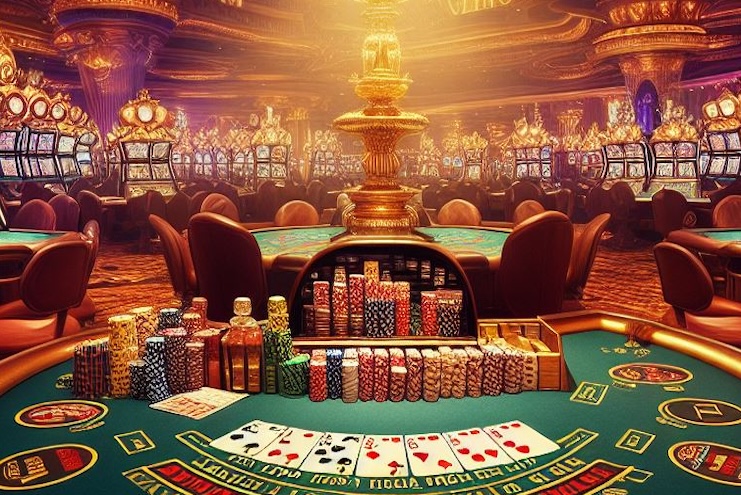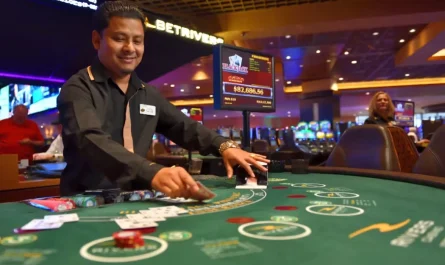When Chance Becomes Faith
Religion has long been humanity’s compass for hope, purpose, and meaning. Yet in modern life, where traditional faith is declining, new rituals emerge in unexpected places. One of these is gambling. The act of betting – whether in physical halls or online platforms like Nomini casino – has begun to function for many as a replacement for religion.
Why? Because gambling provides what religion once promised: hope in uncertainty, rituals that structure time, and the dream of salvation from suffering. While religion asks for prayer, gambling demands a bet. Both offer the possibility – however small – of transformation.
The Human Need for Hope
Hope as Survival Mechanism
Psychologists agree: humans cannot live without hope. It keeps us moving forward, even when the present feels unbearable. Religion traditionally offered hope of divine intervention. Today, gambling steps into that role by offering hope of sudden wealth.
Why Gambling Feels Sacred
The spin of a roulette wheel or slot reel functions like a secular prayer. Each bet whispers: “Maybe this time everything will change.”
Rituals of Religion, Rituals of Gambling
Structured Time
Religion provides rhythm: prayers at set hours, weekly services, annual festivals. Casinos replicate this rhythm: daily log-ins, timed bonuses, seasonal jackpots. Players structure their lives around these rituals.
Sacred Spaces
Where churches once provided sanctuaries, casinos – physical and digital – become spaces outside normal life. Entering them feels like stepping into another dimension where miracles seem possible.
The Theology of Chance
Randomness as Divine Will
Where faith attributes outcomes to divine will, gambling attributes them to chance. But the psychological effect is similar: the outcome feels meaningful, even when random.
The Concept of Salvation
In religion, salvation promises escape from suffering. In gambling, a jackpot promises the same – deliverance from debt, routine, or despair.
Why Gambling Feels More Immediate Than Religion
Tangible Rewards
Religion often offers rewards in another life. Gambling offers rewards now. Even small wins serve as proof of possibility, reinforcing faith in the system.
The Visibility of Miracles
Casinos showcase wins publicly – bells ringing, leaderboards flashing – turning luck into visible miracles that others can witness.
Case Studies: The Faith of the Gambler
- The Devoted Spinner: Logs into slots every evening, treating the ritual like prayer before sleep.
- The Struggling Parent: Places bets weekly, describing them as “my little hope for escape.”
- The Lonely Player: Finds meaning in jackpots, seeing them as “signs” from fate.
Generational Shifts: Religion Declines, Gambling Rises
Millennials and Gen Z
Younger generations raised in secular cultures often replace religious rituals with digital ones. For many, online casinos provide not just entertainment but symbolic meaning.
Gambling Communities as Congregations
Online forums and casino chats function like congregations – groups of believers sharing stories of wins, losses, and faith in the next chance.
The Danger of Gambling-as-Religion
Faith Without Redemption
Unlike religion, gambling rarely offers real salvation. Most players lose more than they gain, turning hope into dependency.
Addiction as False Worship
When gambling becomes religion, it risks turning into worship of chance itself – leaving players trapped in cycles of devotion without relief.
Expert Insights: Gambling as Secular Faith
Sociologists argue that gambling is a form of “secular spirituality.” It provides the same structures – rituals, hope, symbols of salvation – but strips them of transcendence, rooting them in economics and chance.
Conclusion – Casinos as Modern Chapels of Hope
Casinos are not only about money – they are about meaning. Casino platforms mirror religious structures: offering rituals, sacred spaces, and promises of salvation.
But the danger lies in mistaking probability for providence. Gambling can replace the role of religion in providing hope, but it rarely delivers the redemption it suggests.
In the end, casinos are chapels of chance, where the faithful gather not to pray but to bet – seeking hope in numbers, salvation in jackpots, and transcendence in the spin of a wheel.

